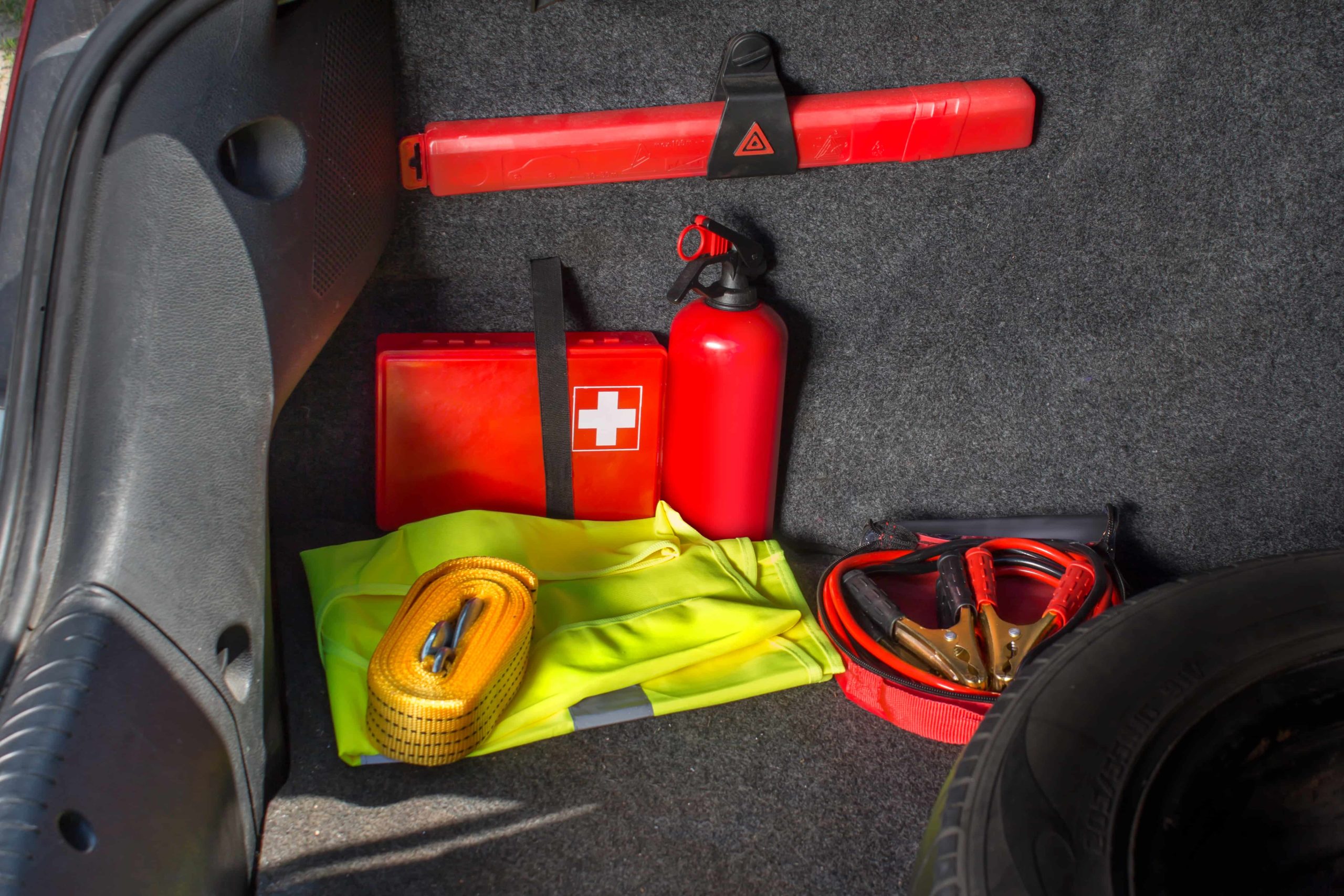Preparation is key. By keeping the right tools and equipment in your car, you can rest assured that you’re covered for every eventuality. Here’s a list of the top 10 essentials you should consider keeping in your car.
1. Spare tyre and jack
Getting a puncture or blowout whilst driving is scary enough, but not having the right tools to fix it could turn an inconvenience into a nightmare. Whilst many cars come with spare tyres, it’s always important to make sure you have fresh one loaded up and ready for use. Spare tyres vary in size, from full on replacements to space savers that are much thinner and only intended for temporary use. Space savers are a good option if you have a smaller car or don’t want to compromise on boot space.
Ofcourse a tyre jack as well as the know-how to change a tyre is required, so make sure you’ve also packed a jack and know how to use it.
2. Tyre Pressure Guage
Ideally, you’d want to avoid damaging your tyres in the first place. A great way to do this is by frequently monitoring the pressure of your tyres using a gauge. If the tyre pressure is too low or too high, it’s important to inflate or deflate the tyres to get them to the correct pressure.
Most cars have a sticker on the inside of the door that tells you the correct tyre pressure that you should be using. If you can’t find a sticker on the bodywork, you should be able to find the details in the user manual.
Bonus: correctly inflated tyres can boost your mileage per tank by up to 3%, so it’s both safe and economical to keep your tyres healthy!
3. Jump Leads
We’ve all been there. You’ve accidentally left your lights on for a few hours, the battery is dead and the car won’t start. That’s why jump leads are one of the most important car essentials to have in your vehicle at all times. All you need is another willing motorist to help jump start your car and get you on your way.
4. User Manual
Whilst much of your car’s information can now be found online, it’s still important to keep a reliable paper copy of your user manual in the glove box. This way, even when your phone is out battery or you have no signal, there’s a one stop shop for all the information you could ever need about your car.
5. Warm Clothing
You never when you’re going to breakdown. If you get stuck in the middle of the night in freezing temperatures, you’ll be glad you remembered to pack a nice thick jacket and a few jumpers. This is especially important if you need to leave your vehicle to find help.
6. Food and Water
It’s important to keep up your energy levels and stay hydrated whenever you’re on the road. Keeping some drinking water and non-perishable snacks like energy bars in your car is crucial, especially for those longer trips. The water can also double up as a top for your car’s radiator if you ever need it.
7. Hi-vis jacket
Hi-vis jackets are considered so important that they’re required by law in many European countries. Whilst it’s not illegal to drive without one in your car in the UK, they’re still essential items that take up very little space in your car. If you ever need to walk away from your vehicle on a dark, rural road, a hi-vis jacket could mean the difference between being spotted by a passing motorist, or hit by one.
8. Warning Triangles
Warning triangles have a reflective coating that alerts all approaching traffic that your car has stopped. By placing one at the front and another one at the rear of your vehicle, all motorists regardless of the direction they’re coming from, should be able to see you clearly. This is an essential step ensuring that breakdown situations are kept safe and secure.
9. UV-400 Sunglasses
If it’s clear weather and the sun is low in the sky, it could be shining directly into your eyeline. To ensure that you maintain full visibility of the road, and also protect your eyes, it’s a good idea to keep a pair of UV-400 sunglasses in your car.
10. Road Atlas
Road maps may seem redundant in this day and age but they could be the only thing that saves you when you get lost. Whilst modern satnavs are incredibly advanced, they still rely on phone signal and battery to operate, both of which you could find yourself without, especially in rural areas. A trusty, old fashioned road atlas on the other hand, will never run out of battery.
